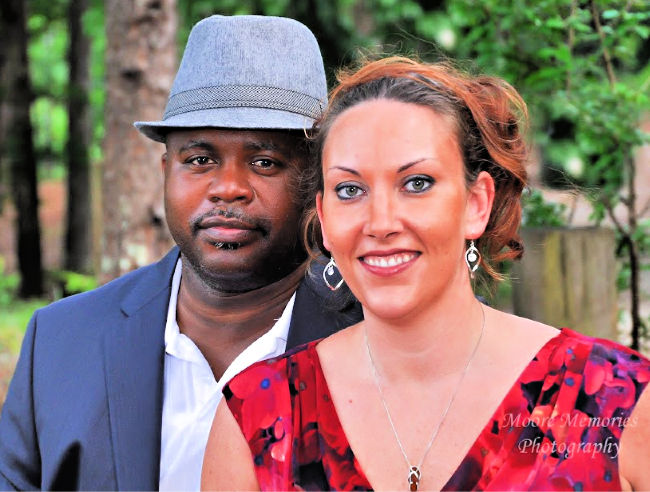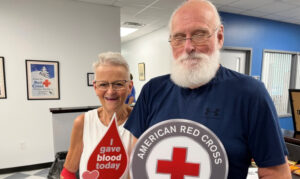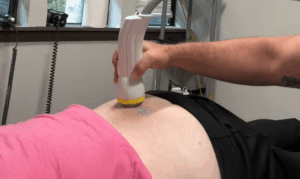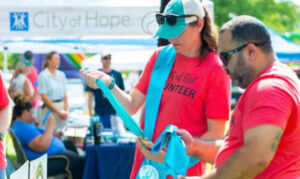Tyrone resident Jessica Ball did not have any of the typical risk factors for a stroke; high blood pressure, diabetes, high cholesterol levels, or heart disease, but one evening last fall the unimaginable happened and she ended up in the emergency department of Piedmont Fayette Hospital.
Jessica had been ill that day. As she was getting up to put her daughter back to bed, her left arm felt strange, as if it had fallen asleep because of how she had been laying on it. She got back up a few minutes later and fell over.
“I had no control over my body and just fell,” Jessica said. “I was fading in and out.”
Jessica’s husband, Jeff, rushed to help her and asked her what was wrong, but it was hard to understand her.
“She was dragging her left foot and her arm was draped to her side,” Jeff said. “She was slurring and then she passed out.”
Jeff called 9-1-1 and members of Fayette County EMS brought her to Piedmont Fayette. She was treated for stroke with a clot-busting drug called t-PA (tissue plasminogen activator) and then transferred to Grady Hospital where she underwent a neurological intervention to remove a clot and place a stent in her carotid artery. Jessica bounced back quickly and was discharged home just a few days later. Doctors stated there was a tear in her carotid artery, possibly from the strain of coughing and vomiting earlier that day, and when the blood clotted to fix the tear, two clots also went to her brain.
Jessica has recovered well and knows that the fast action of her husband calling 911 and all involved helped lead to a positive outcome.
“The faster a stroke is recognized and treatment is provided to restore blood flow to the brain the greater chance disability will be reduced. Every minute nearly 2 million brain cells can die. Recognizing the symptoms and calling 911 immediately are the first steps to improving outcomes,” said Lisa Jackson, Stroke Program Manager at Piedmont Fayette.
The key to optimal recovery of a stroke and decreasing disability is to BE FAST:
- Balance – Watch for dizziness or loss of balance
- Eyes – Check for vision loss of double vision
- Face – Look for an uneven smile
- Arm – Check if one arm or leg us weak
- Speech – Listen for slurred speech or difficulty speaking
- Time – Call 911 right away
For more information on strokes or Piedmont’s neurological services, visit piedmont.org/neurosciences.













Leave a Comment
You must be logged in to post a comment.